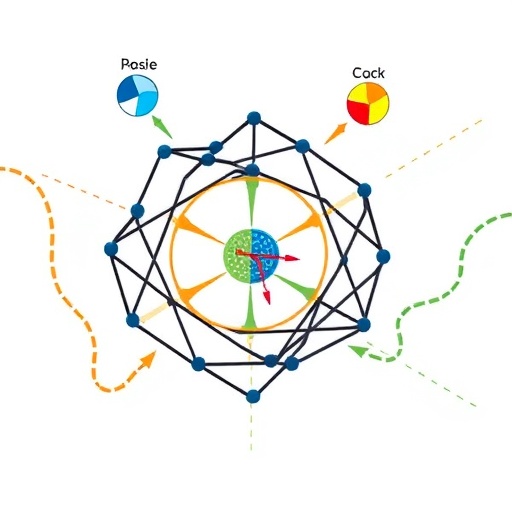In the pursuit of fostering a generation of critically thinking individuals, educators have increasingly turned their attention to problem-solving skills, particularly within the realm of STEM education. A systematic review conducted by Musengimana, Yadav, Uwamahoro, and colleagues sheds light on the instructional strategies that effectively enhance students’ problem-solving abilities in physics—a subject often seen as challenging and abstract. This review, published in Discover Education, serves as a beacon for teachers and education practitioners seeking to adopt evidence-based methodologies that engage students and cultivate their analytical skills.
The authors meticulously combed through a plethora of academic studies, distilling key findings on instructional strategies that are not just theoretically sound but also practical in real classroom settings. This exploration reveals that traditional methods alone, which have relied heavily upon rote memorization and passive learning, are no longer sufficient in equipping students with the necessary tools to tackle real-world problems. Instead, innovative instructional approaches are called for—ones that actively engage students in the learning process and encourage them to grapple with complex concepts.
A significant portion of the review emphasizes the importance of inquiry-based learning as a core strategy. This method invites students to ask questions, investigate phenomena, and develop solutions through exploration and reasoning. Rather than the instructor being the sole source of knowledge, the learning environment transforms into a collaborative space where students feel empowered to seek answers independently and share their findings with their peers. This approach not only enhances understanding but also builds confidence in students’ abilities to solve problems.
Furthermore, the review highlights the growing importance of integrating technology within physics education. In an era where digital tools dominate communication, harnessing technology can make physics more accessible and engaging for students. The use of simulation software, interactive apps, and online collaborative platforms has proven effective in not only demonstrating complex physical principles but also allowing students to experiment in ways that were previously impossible. With the right technological tools, educators can bridge the gap between theory and practice, providing students with realistic contexts in which to apply their knowledge.
Another key finding from the review pertains to the pivotal role of metacognitive strategies. Teaching students to think about their own thinking—reflecting on their problem-solving processes—enables them to identify their strengths and weaknesses. This self-awareness is critical as it promotes a growth mindset, encouraging students to view challenges as opportunities for learning rather than as insurmountable barriers. Moreover, encouraging metacognition prepares students to approach problems in a structured manner, breaking down complex tasks into manageable steps.
Collaboration also emerges as a vital component of effective problem-solving instruction. Group work fosters diverse perspectives and exposes students to different approaches to tackling the same problem. When students collaborate, they learn to communicate effectively, cultivate empathy, and develop respect for differing viewpoints. This collective problem-solving experience mirrors the collaborative nature of real-world scientific inquiry and helps to prepare students for future careers where teamwork is essential.
However, implementing these innovative strategies is not without its challenges. Educators must confront the existing culture within educational institutions that often favors standardized testing and traditional metrics of success. The pressure for students to perform well on exams can stifle creativity and discourage risk-taking in problem-solving—two essential components of effective learning in physics. Therefore, the review calls for a shift in assessment practices that aligns with the goals of enhancing problem-solving skills.
The review also encourages ongoing professional development for teachers. Training programs that equip educators with the latest pedagogical strategies and technological tools can lead to transformative changes in the classroom. Empowering teachers to adopt these new methods ensures that they feel confident in implementing them, fostering an enriching educational environment that nurtures students’ problem-solving capabilities.
The impact of enhancing students’ problem-solving skills in physics extends far beyond the classroom. As students become adept at tackling complex problems, they develop critical skills such as analytical reasoning, creativity, and persistence. These skills are not only invaluable in the field of physics but are transferable across various disciplines and real-life situations. By focusing on problem-solving, educators are not just teaching students to excel in physics; they are preparing them to navigate a world that increasingly values innovation and adaptability.
In conclusion, the systematic review presented by Musengimana and colleagues provides comprehensive insights into effective instructional strategies for enhancing students’ problem-solving skills in physics. It champions methods such as inquiry-based learning, technology integration, metacognitive strategies, and collaboration, all while recognizing the challenges inherent in educational reform. As the educational landscape continues to evolve, it is essential for educators to remain receptive to evidence-based practices that genuinely broaden students’ horizons and equip them for future success.
The findings of this review serve as a catalyst for more expansive discussions on the future of physics education, spotlighting the critical importance of fostering problem-solving skills that students will carry with them throughout their lives. By prioritizing these instructional strategies, educators can ignite a passion for physics in their students, transforming challenges into opportunities for growth and discovery.
Subject of Research: Instructional strategies for problem-solving in physics education.
Article Title: Instructional strategies for enhancing students’ problem-solving skills in physics: a systematic review.
Article References:
Musengimana, T., Yadav, L.L., Uwamahoro, J. et al. Instructional strategies for enhancing students’ problem-solving skills in physics: a systematic review.
Discov Educ 4, 380 (2025). https://doi.org/10.1007/s44217-025-00733-x
Image Credits: AI Generated
DOI: 10.1007/s44217-025-00733-x
Keywords: problem-solving, physics education, instructional strategies, inquiry-based learning, technology in education, collaborative learning, metacognition.




